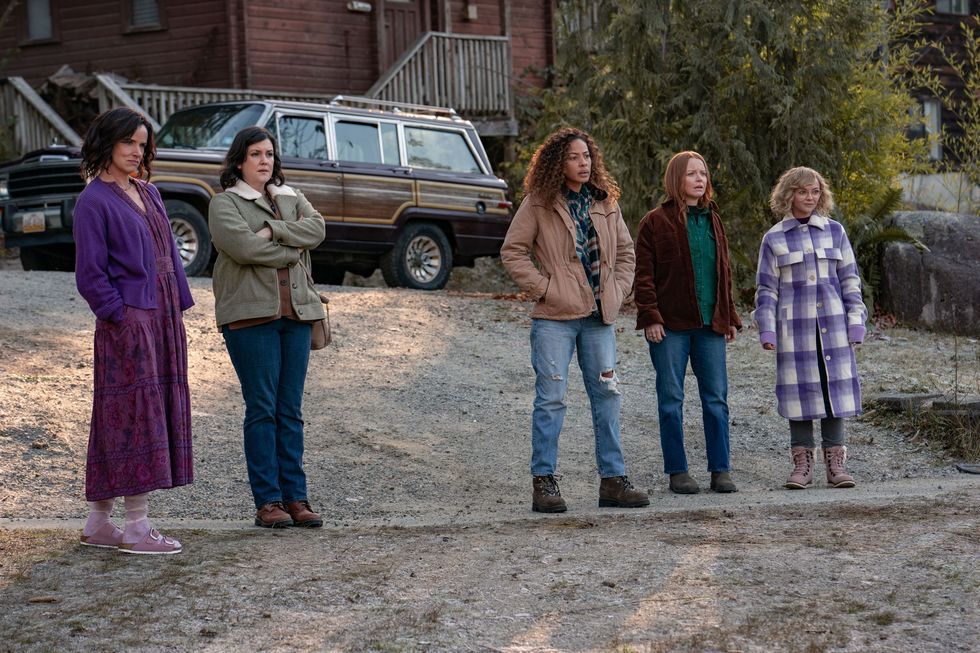Through the Portal They Can Make Amends: Yellowjackets (Ashley Lyle, Bart Nickerson & Jonathan Lisco, 2022)
Whatever, we're blanket friends.

A few years ago, I started hunting down people from my teen years and apologizing to them. I’d been working through my gender, during the pandemic, and in the process I had worked out a long and detailed timeline of my adolescence. I’d spent a lot of time inside those memories, trying to figure out where my life had slipped off the track.
Of course, you can’t spend time inside your own memories without hitting memories of other people — people you lost, people you failed, people you hurt. Therapists will tell you to “forgive yourself” (my therapists will, anyway) but that has always struck me as an immoral concept. Every time I read a self-help book on “being easier on yourself” and “having compassion for your mistakes,” I imagine the worst person who could be reading it: A priest who molested members of his congregation, a Nazi who fled to Argentina, a cop who shot a little kid and got away with it, the Zodiac Killer.
I don’t forgive those guys. Why would I want them forgiving themselves? That’s cheating. Forgiveness comes when it’s earned, when someone of sound judgment (so, not a Nazi) can bear witness to the harm you inflicted and decide you’ve changed. I can “forgive myself” for failing myself. I need other people to forgive me when I fail them.
So I decided to find the people I had hurt or let down — where possible, where contacting them wouldn’t itself cause harm — and at least try to offer full accountability. I don’t really want to get into the specifics, because it would cheapen the act to make it public, and also (frankly) because I find that other people regard those details as trivial or boring, when they were nothing of the sort to the people in question. I apologized for cutting people out of my social circles, for being cruel, for bailing on people, for ghosting people; I apologized for not being there in people’s times of need, or for not realizing they were in need, or for being there in the wrong ways, providing “help” which didn’t help or which aggravated the problem. Normal stuff; kid stuff; the sort of evil teenagers do.
The apology tour was not a new concept. Recovering alcoholics are supposed to do some form of this, after taking inventory. The philosopher Wittgenstein did it, though he was such an unsparing self-critic that he often wound up apologizing for things his friends didn’t know he had done, thereby making the situation worse. (“If ever a thing could wait,” one victim of a Wittgenstein apology recalls thinking — accountability might feel heroic for the person offering it, but for the people on the other end, it’s often just annoying.)
I was unaware of Wittgenstein’s example, when I started, so I charged ahead. I did find some forgiveness, and it did heal me. I also sometimes found myself apologizing for things the other person didn’t remember, or that they remembered much differently than I did. It was a shock, after spending so long constructing the narrative of my own adolescence, to realize it wasn’t universal or objective. My sins looked different to everyone else than they did to me, because they were part of a different history, one I hadn’t understood nearly as well as I thought. I knew how I had survived to adulthood, and what I had done to get there, but they had their stories, too. Those stories were only sometimes about surviving me.